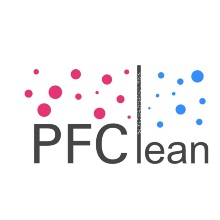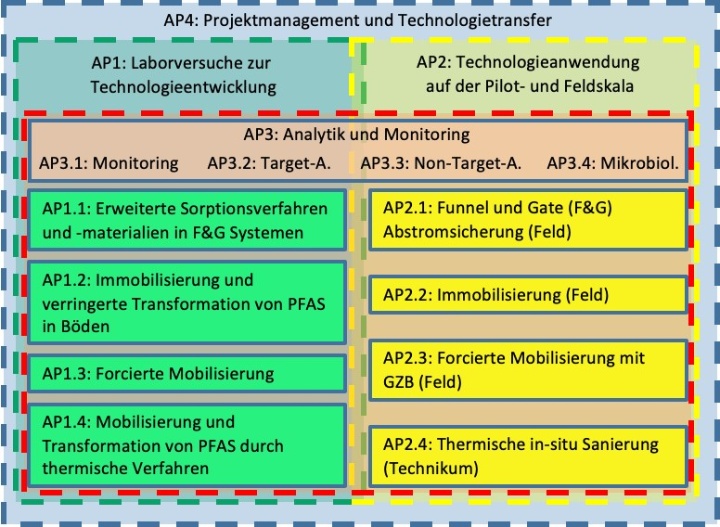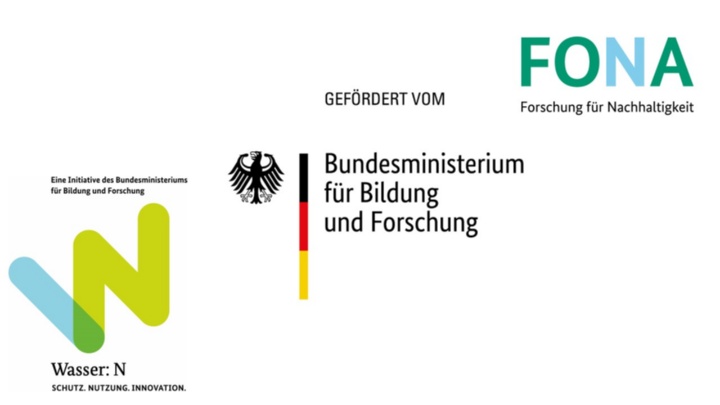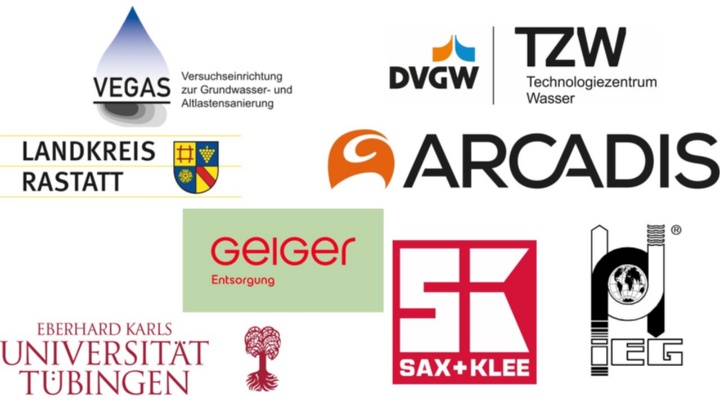PFClean: Innovative modular system for sustainable reduction of PFAS contaminants from soil and groundwater
Project content and aim
The substance group of per- and polyfluorinated alkyl substances (PFAS) comprises several thousand (OECD list) to several million individual substances (PubChem, NCBI). Due to their persistence, bioaccumulation and toxicity, as well as their widespread use and ubiquitous occurrence in the environment, PFAS currently pose one of the greatest challenges, including for closed loop recycling management, water management and drinking water supply. The aim of the PFClean research project is the further development and testing of various approaches for the remediation and removal of PFAS from soil and groundwater such as "funnel and gate", "immobilisation", "forced mobilization" and "thermal remediation" on a pilot and field scale.
In the sub-project of the University of Stuttgart, the focus is on the development of in-situ remediation technologies for extensively introduced PFAS (e.g. from paper sludge) and for PFAS point sources (extinguishing foams). Another focus is the development of monitoring concepts for PFAS remediation.
Based on the results from the BW-Plus project "PFAS-Immo" gained in in large-scale tests (lysimeters) and field applications, the efficiency of immobilization will be demonstrated for PFAS applied over a large area, and this method will be developed from TRL5 to TRL7.
PFAS point sources are usually spatially limited and therefore "more active" methods for direct ejection of PFAS can also make economic sense. In PFClean, a combination of a groundwater circulation well with a funnel & gate system and the use of thermal energy to discharge PFAS is being developed. Especially when it comes to the application of thermal energy, VEGAS can contribute more than twenty years of experience in the laboratory and in the field to the project. A PFAS remediation using thermal energy is to be developed from TRL3 to TRL5. Furthermore, monitoring concepts must be developed for both large-scale experiments and field applications.
Duration
01.03.2023 until 28.02.2026
Finance
project partners
Universität Stuttgart, Versuchseinrichtung zur Grundwasser- und Altlastensanierung (VEGAS); www.vegasinfo.de
TZW: DVGW-Technologiezentrum Wasser, Karlsruhe; Sachgebiete Wasserchemische Forschung (WCF) und Umweltbiotechnologie und Molekularbiologie (U&M);
https://tzw.de/
Eberhard-Karls-Universität Tübingen, Arbeitsgruppe Umweltanalytik;
https://uni-tuebingen.de/de/84447
ARCADIS, Arcadis Germany GmbH, Darmstadt
Planungs- und Beratungsunternehmen für natürliche Schutzgüter und bauliche Vermögenswerte
https://www.arcadis.com/de-de
Geiger Entsorgung GmbH und Co KG, Oberstdorf
https://www.geigergruppe.de
IEG, Industrie Engineering GmbH, KMU*, Reutlingen
https://www.ieg.org/pages/d/umwelt.htm
S+K, Sax und Klee Bauunternehmung, Mannheim
https://www.sax-klee.de/





